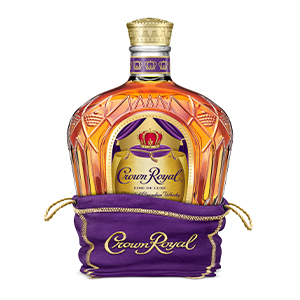The world of wine is full of hype. There’s a constant ebb and flow of trends when it comes to regions and styles of wine, which can make it difficult to suss out which ones are worth buying into, and which are simply the result of any given year’s viral moments or pop culture craze
To figure out which wine trends are worth spending our time (and money) on, and which are worth skipping, we asked sommeliers to share the bottles, styles, and regions that they find consistently underwhelming. Here’s what they said:
The Most Overrated Wines, According to Sommeliers
- Champagne from large houses
- Napa Cabernet Sauvignon
- Burgundy
- Orange wine
- Wines for critics
- “Natty” wine
- Champagne
“Champagne from ‘known’ houses where you’re paying for the label, not the wine. I won’t name brand names because they’re easy to assume, but I can’t tell you how many people have left our store when I say I don’t have X famous brand and instead that we only carry grower Champagne, meaning wine produced by the same estate that actually grew the grapes as opposed to buying them. There’s nothing wrong with buying grapes from elsewhere, but it’s so special, especially for something as complex and long-aging as Champagne, to know someone controlled the entirety of the process and was really able to inform the end wine at every step of the way. There’s so much more amazing complexity than you get from a bigger house that relies mostly on marketing.” —Sande Friedman, beverage manager, Di Bruno Bros., Philadelphia
“Napa Cabernet, to me, is one of the most overrated wine styles. Often enjoyed way too young and usually way overpriced for low quality, this is a wine style that people saw their parents drink at steakhouses, and now continue to consume because it is viewed as the benchmark for American red wine.” —Andrew Elder, service, beverage, and wine director, JONT, Washington, D.C.
“Napa Valley Cabernet Sauvignon. The overwhelming majority of them taste exactly the same. They’re not bad, just lacking in style.” —Rick Arline, director of wine, Hotel Per La, Los Angeles
“For me, the most overrated wines are over-extracted Cabernet Sauvignon from places like Napa or Walla Walla. While amazing wines can be made in most places, a lot of producers let their grapes stay on the vine too long or manipulate the wines post-harvest to create something that is rich but lacking in character, complexity, and balance.” —Francis Kulaga, beverage director, Birch & Rye, San Francisco
“I’m tired of people asking for Napa Cabernet. People read that we have a nice wine program and expect to see a ton of Cabernet, which we don’t have. My stance is that there’s a whole world of wine out there, and people pigeonhole themselves into drinking one thing — Cabernet — which is often over-extracted, over-naked, and obnoxious.” —Frank Kinyon, beverage and service director, a.kitchen+bar, Philadelphia
“Classified Burgundy. It can be delicious and gorgeous, but that’s just it — it CAN. It’s entirely possible to pay top dollar for Burgundy and get a bottle that’s frankly ‘meh,’ especially if you consider the price-quality ratio. If you’re not going in with knowledge of the producer and vintage, it can get trickier than it should be for the cost.” —Bin Lu, executive chef, Blue Rock, Washington, Va.
“Orange wines for the masses. (A rock wine press continues to push uphill.) Most people consider it a curiosity, but they won’t order a second glass, much less a second bottle.” —Matt Stamp, sommelier and founder, Compline Restaurant and Wine Shop, Napa, Calif.
“Wines that are produced in a style that are made to appeal to the tastes of critics and press handing out ratings are overrated. It is more important to focus on showcasing terroir and favoring consumers’ tastes.” —Paul Lysek, service manager, Safta, Denver
“Natty wine! Is it kombucha, is it beer, or is it wine? If it tastes like it could be any or all of the above, it’s just not worth it (especially if it comes with a $30+ price tag). There is so much beautiful natural wine out there that is organic, sustainable, focused on ethical treatment of workers, using indigenous yeast, handpicked, etc. These wines are indicative of varietal, place, skilled farming, and winemaking. And then there are a ton of wines that take very little skill at all, are fermented ‘til they’re tart or ‘funky,’ and then released as something special when it could be any fruit, coming from any place, and it just feels like drinking a trendy price gouge.” —Sarah Myers, service manager, Middle Child Clubhouse, Philadelphia
“Champagne. Controversial opinion, I know. And, hypocritical coming from someone who loves to drink Champagne as often as possible. But, hear me out: The stuff is hugely expensive, the exciting bottles are allocated and tough to find, and you need an insider level of knowledge to know what the hell you’re getting if you aren’t buying from big houses. Listen, I’m not saying we shouldn’t be drinking Champagne, but let’s all collectively agree that there are other traditional- method sparklers out there that are damn delicious and so much more accessible. Champagne isn’t the only option, and we need to stop pretending like it is.” —Jamie Harrison Rubin, sommelier, Kid Stuff Hospitality, Philadelphia
